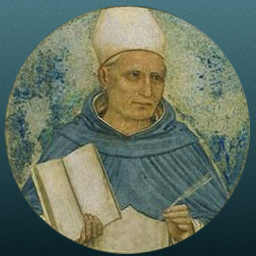A happy 2015 to you all!
1) A draft programme for the Catholic Social Teaching Classes is now available here. As it is still draft, please check on the blog or with Elizabeth for updates. (See 'Newsflash' on right sidebar of blog.)
2) As everyone else seems to be doing this at this time of year, I thought I'd get some suggestions for 2015 reading. Please feel free to comment or to add your own suggestions!
SCIAF Head of Communications and Education:
1. Working together, SCIAF, Justice and Peace Scotland and Mission Matters Scotland have produced a resource on Catholic social teaching for parish groups. A four week programme guides participants through prayer, learning key elements of CST and discussing how to put faith into action within a parish context. http://www.justfaith.org.uk/resources
There’s also a 3 minute animation on CST for anyone who needs a refresher!
2. Some of the interventions at the recent UN General Assembly by the new Holy See representative are really worth a read. I particularly recommend the document on poverty eradication – summarising Catholic teaching both current and timeless, in less than 2 pages! [PDF download here]
Elizabeth Drummond Young
Director, Albertus Institute:
Hospitality as Holiness: Christian Witness amid Moral Diversity, by Luke Bretherton (2010) Farnham: Ashgate ISBN: 9781409403494 p/bk £19.99 [Google Books record here.]
Bretherton wants to explore how hospitality can be a force for solving ethical disputes. There are two distinct parts to this book; the first is a theoretical discussion of the work of Alasdair MacIntyre and two theologians, Germain Grisez and Oliver O’Donovan about how their philosophy makes room for solving intractable issues. Bretherton sides with O’Donovan, who emphasises the life of Christ on earth as the model for a Christian life. The second part is a case study of how hospitality can provide an answer to the ethical dispute of whether euthanasia is an appropriate response to the terminally ill. Bretherton gives a distinctive Christian response against euthanasia and then uses the hospice movement as a instance of how the Christian social practice of hospitality is the way for Christians to relate to non-Christians in ethical disputes. A good example of a book which combines theory and practice. First part hard going if you aren't a philosopher or theologian - probably best approached in the library with a coffee break or two but worth the effort!
Stephen Watt,
Tutor, Albertus Institute
1) Pierre Manent: Seeing Things Politically: Interviews with Benedicte Delorme-Montini (2015)
St Augustine's Press ISBN: 978-1587318139 h/b £17.84 [Amazon here]
This is either a bit of a cheat as a selection (as it hasn't been published in English yet) or an example of serendipity! I've long been an admirer of Manent who I think deserves to be better known in the UK as a political thinker. (An essay of his which introduces key themes in his thought is here.) I read the French version of these interviews in 2014, and was wondering whether to include them in this end of year 'booklist' when I realized that the English translation is coming out next year. As well as introducing some of Manent's thought, the interviews are a fascinating insight into the life of a key French Catholic intellectual. (And unlike many other French intellectuals, Manent writes clearly!)
2) Edward Feser: Scholastic Metaphysics: A Contemporary Introduction (2014) Editiones Scholasticae ISBN: 978-3-86838-544-1p/b £29.45 [Publisher's description here]
Feser has been a highly visible presence in the revival of neo-Thomism which seems to be taking place in the USA. (His blog [here] manages to combine a sure grasp of philosophical technicalities with biting wit when provoked.) With the publication of this manual of scholastic metaphysics, Feser provides an accessible account of the basics of the metaphysics of St Thomas Aquinas as seen by someone who has a firm grasp of modern analytic philosophy. This won't be an easy read for someone without a background in philosophy, but does at last provide a modern alternative to some of the introductory manuals in English which are showing their age! (For those who want a gentler introduction to the metaphysical issues, Feser's earlier (popular) The Last Superstition [Google books here] or (more academic) Aquinas [Google books here] are probably better alternatives.)




